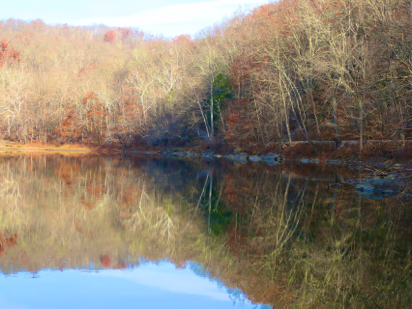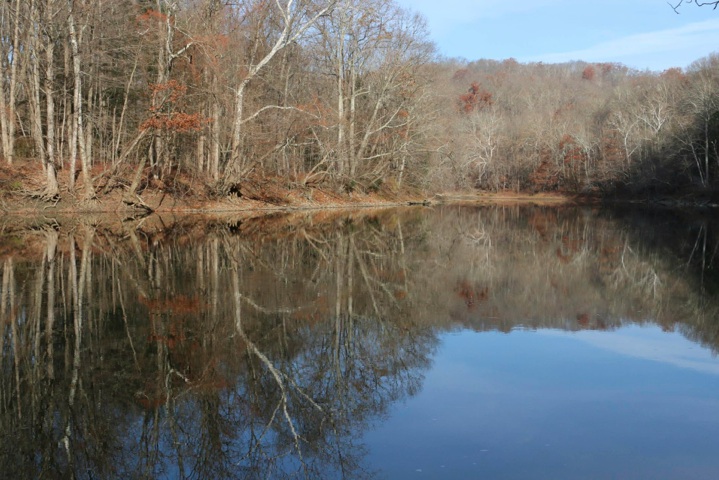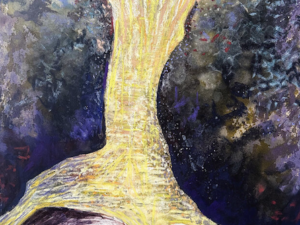
–
A week ago today, I had a regular monthly meeting of my town interfaith clergy. The previous month, we had discussed a need to rethink what we offered for the community observance of the National Day of Prayer –which is the first Thursday in May– since the evening town-wide service has not been well attended. So I came to the meeting a week ago with an alternate suggestion.
Instead of a service, maybe we could hold a prayer vigil. Our church auditorium is too small for the huge town-wide services, but would be an intimate setting for the community to come together in silent prayer.
It could be organized in a variety of ways, and the clergy group could determine whether they wanted a long open ended come-and-go approach or scheduled participation where someone from each church would commit to come and pray silently together in certain time slots. I was offering to host the vigil, and felt that it would be well received because it was both simple to execute and potentially more meaningful than what we had done before.
I was unprepared for the local clergy’s response to this suggestion. I have been in this clergy association for seventeen years and participated in many services that are outside the realm of my spiritual tradition. I’ve respectfully jumped through their hoops of “liturgy” and verbal prayer that are no part of my own practice. I was looking forward to sharing an event of silent prayer that was finally more in keeping with how I practice my faith.
But the idea was slammed. I was told in no uncertain terms that people don’t know how to pray. They are uncomfortable with it. They need music and to be told the words to think. They would have no tolerance for silence and indeed could not be induced to show up for that. Why should they? What would be the purpose? Thus said the Protestants, the Jews, and the ordained psychotherapist.
The Catholic priest was the kindest, saying, “We believe in silent prayer, but our chapel is open 24/7, so why should my people go to pray under your roof?” Then the sprightly young Episcopal priest said we shouldn’t do something in a building anyway because people are leery of going into houses of worship. She advocated a walk in the park. Most of the clergy wanted to completely forgo any observance at all. Minutes before we had blithely done away with the ecumenical Good Friday service that our clergy association had faithfully held every year for over 50 years.
It has taken me this whole past week to absorb that this is what the local religious leaders think about both the capacity of their people and the value of silent prayer. Evidently, they are in the business of leading intercessory prayer and not teaching their congregants to pray. I was both surprised and disappointed.
To me, direct relationship with the Source of all existence is the whole point of spiritual practice. If every individual the world over knew how to do this better–in whatever way was sincere, healthy and connecting for them– experience here on earth would be vastly improved for everyone. To me, silent prayer is so powerful and transformational it is tantamount to saving the world.
When Jesus taught us to pray, we are told to “go into the closet,” –praying “in secret”– which sounds to me like he’s not only recommending you be totally alone with God in prayer, but shut out the distractions of the material senses as well. We are told not to pray in “vain repetitions” and then he told us in what way to pray. He also gave us a lively example of praying by himself on the mountaintop, and then coming down and healing “all manner of sickness among the people,” simply because silent prayer was that powerful.
Are Christians losing sight of the fundamental importance of silent prayer? Both Yoga and Transcendental Meditation are popular now, with lots of emphasis on sitting in silence. I imagine their adherents would be more comfortable with my silent prayer vigil than my fellow Bible believers were. Are people turning to these other traditions to get what Christianity has not taught them?
The founder of the Christian Science church has this to say in her book Science and Health with Key to the Scriptures, “Audible prayer can never do the works of spiritual understanding, which regenerates; but silent prayer, watchfulness, and devout obedience enable us to follow Jesus’ example.”
Meanwhile, please join with me in collective silent prayer as individuals –”praying without ceasing”– for the world. In whatever way, may each individual be led to the blissful communion, the blessed companionship, and transformative healing power that is only available in silent prayer. May the universal potential of silent prayer be recognized and utilized (soon!) by everyone.
–







